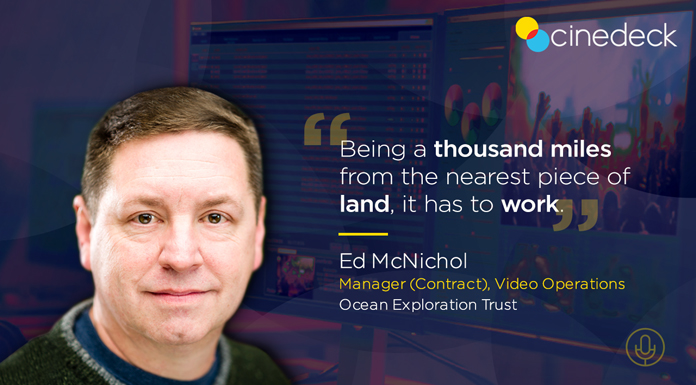Considering that our oceans cover more than 70 percent of our planet’s surface and contain more than 97 percent of the Earth’s water, it’s surprising to realize that only about 5 percent of the world’s seafloor has been mapped in detail, leaving approximately 65 percent of the Earth (excluding dry land) unexplored. With so much of our planet yet to discover, governments, organizations, and private funding are furthering mankind’s ventures into sea, helping us to unravel the mysteries of the deep.
Yet, there is a high degree of difficulty and cost in exploring undersea. Vessels are one of the most critical elements in any ocean-going venture, carrying food, water, fuel, and the equipment necessary to the crew’s survival while on mission. These vessels must also house specialized tools and technologies that allow scientists and researchers to explore underwater environments, including cutting-edge computers and navigational and communications systems. For video production staffs responsible for capturing potentially once-in-a-lifetime discoveries in these extreme environments, their equipment must be rugged, dependable, and of superior quality in order to provide quality image streaming to shoreside teams and online viewers.
On today’s MarketScale Science podcast, we got to sit down and chat with Ed McNichol, Video Operation Manager on contract for Ocean Exploration Trust. OET was founded in 2008 to engage in pure ocean exploration, seeking out new discoveries in the fields of geology, biology, maritime history, archaeology, and chemistry. With all scientific research conducted at the highest international academic standards, OET pushes the boundaries of ocean engineering, technology, education, and communications, sharing their expeditions with explorers around the world via live telepresence.
“The most fascinating thing I’ve ever seen at the bottom of the ocean is what we’re just about to see next. It’s just such a mystery. And whatever’s just outside the reach of our lights, no matter how tired I am at sea, that’s what keeps me energized and engaged, because it’s such an unknown. So, I can’t fall back and say there’s any one particular thing I’ve seen that stands out because it’s all such a magical, mysterious area of our planet,” McNichol said.
As OET’s contracted Video Operations Manager, Ed shoulders a lot of responsibility. He must ensure that each expedition is optimally captured and recorded on film. While new technology such as satellite equipped vessels have made a great impact on ocean video exploration, evolving technologies and companies like Cinedeck’s are helping to refine and optimize undersea video production.

